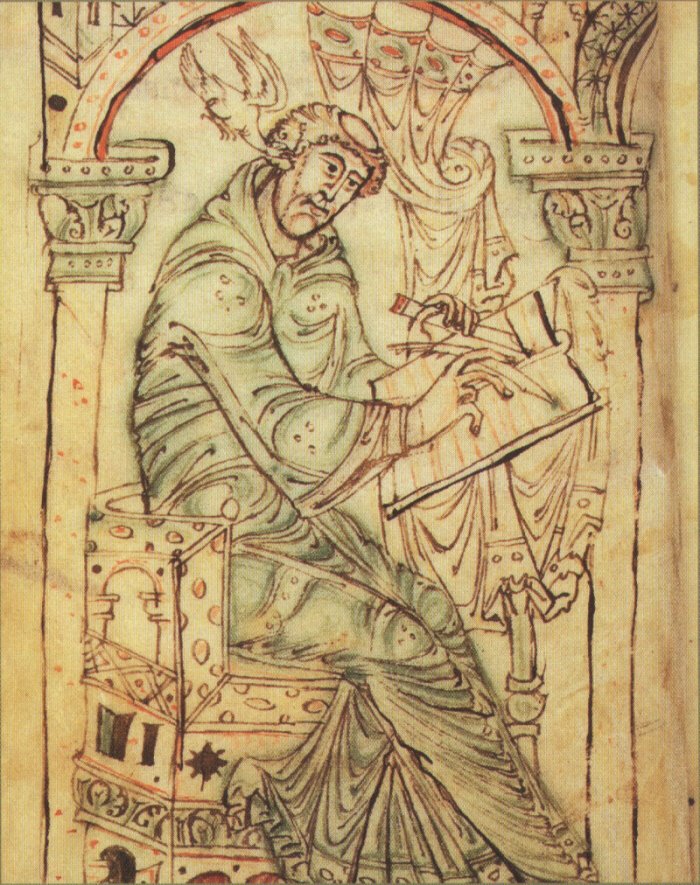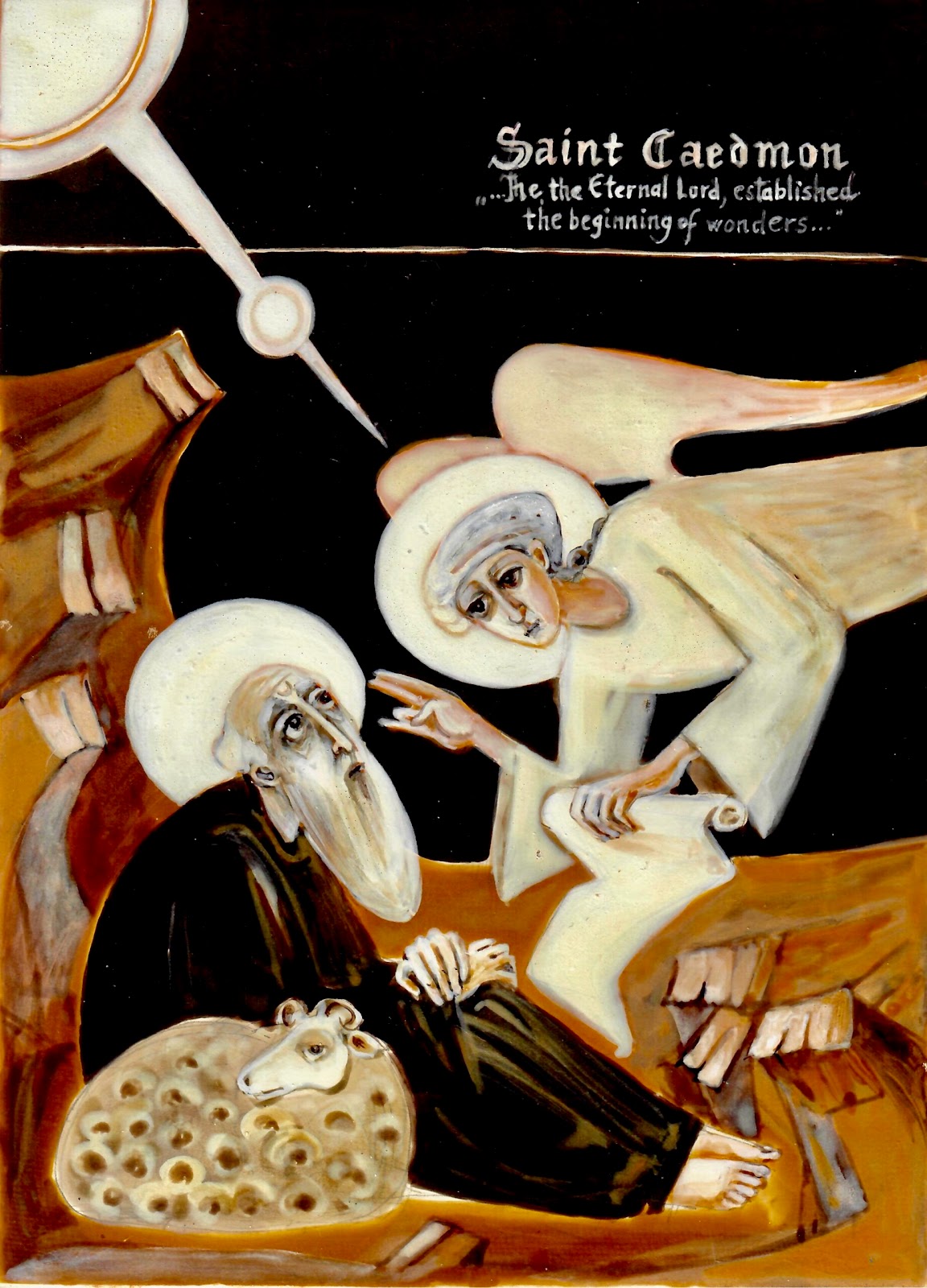I can't remember what made me think of Cædmon's Hymn again, but it sent me down a hole of St. Melangell (rabbit-hole ... get it???) of memory. I used to have this thing memorized in Old English and was trying to set it to something singable. No easy feat which, I guess, is why I never finished it. As a refresher, Cædmon's hymn might be (likely is) the oldest poem written in Old English. It's almost certainly the oldest surviving bit of Old English poetry. Here's the story of it's composition as written by the Venerable Bede, one of my heroes of the faith:
"Cædmon, sing some song to me."
"I cannot sing," he answered, "and for that reason I left the feast and came hither, because I could not sing."
He who talked with him answered, "However that may be, you shall sing to me."'
"What shall I sing?" rejoined Cædmon.
"Sing the beginning of created things," said the other.
Having received this answer, the abbey's cowherd began to sing, to the praise of God the Creator, verses which he had never heard before, and afterwards awaking from his sleep, he remembered all that he had sung in his dream and added more to the same effect in verse worthy of the Deity.
Some interesting notes about some of the words:
- In the last line, "frea ælmihtig" means "Almighty Lord." I'm sure you can tell which word is "almighty" but I had to look up "frea" because of it's similarity to Freya/Freyja, the Norse goddess of, among other things, war, sex and seiðr. They are cognate, but they both come from earlier words meaning lady/lord respectively. It's one of those things that would lead both Pagans and certain Protestants to conclude that, clearly, this is a reference to the Norse goddess and, thus, the entire poem is pagan, ackshully, etc, etc.
- I used the English letters that are no longer in use, æ (ash ... pretty much like ae not joined together, but it looks cooler joined together), ƿ (wynn or "w"), 7 (ond/and), ȝ (yogh ... kind of "y", usually represented as "g" today), ð (eth or "th" like "that") and my favorite, þ (thorn or "th" like "think").
- Some of the lines are surprisingly understandable. In the first line, there's only a couple of words we aren't still using today. "Nu" is "now," "ƿe" is "we," "ƿeorc" is "work" and "æfter" is "after."
- "Heofonrices" is really fascinating because it's the "Heaven-Reich" or the "Reich of Heaven" "Reich" is always a bit triggering because of the "Third Reich," but it's a cool word nonetheless.
- "Ƿard" or "ward/warden" is easily understandable. Actually, the word "lord" is actually "hlaf-ƿeard" or "loaf warden/keeper of bread" which is a great title for Jesus. Oddly, that word isn't used in this poem, but another word for "lord" is, "drihten"
- The letter "7" can be used in place of the "&".
- "Ƿuldorfæder" is "Glory-Father" or "Father of Glory." I hoped that "ƿuldor" had turned into or was etymologically related to "wonder" but, alas, 'tisn't so.
- I'm assuming most people can parse out "middanȝeard" which is very close to "midgard" or "middle earth."







Comments
Post a Comment